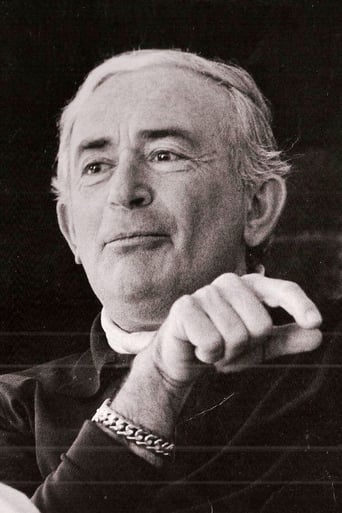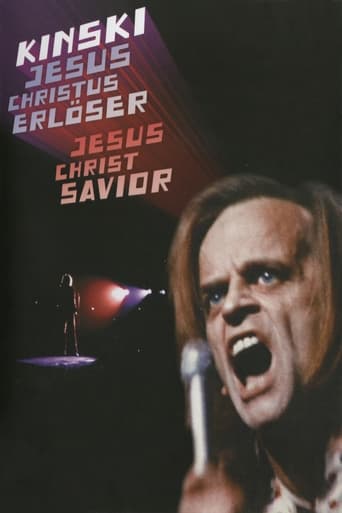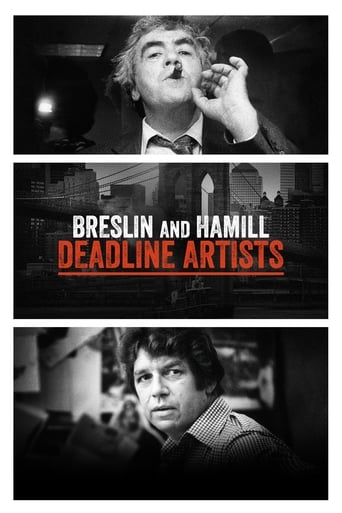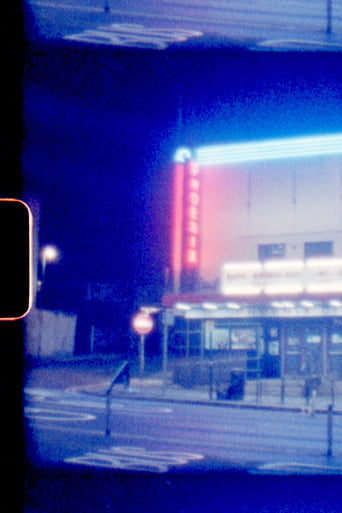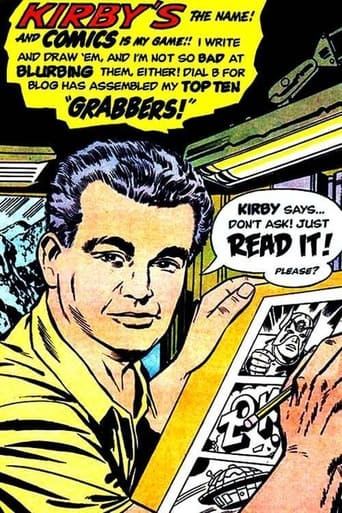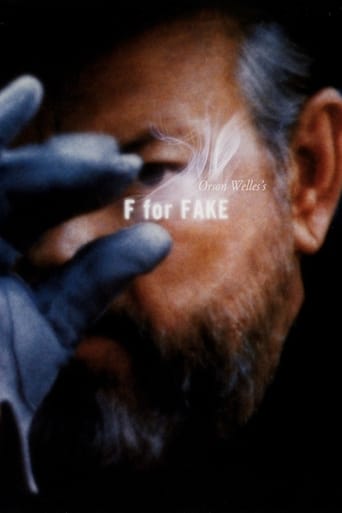
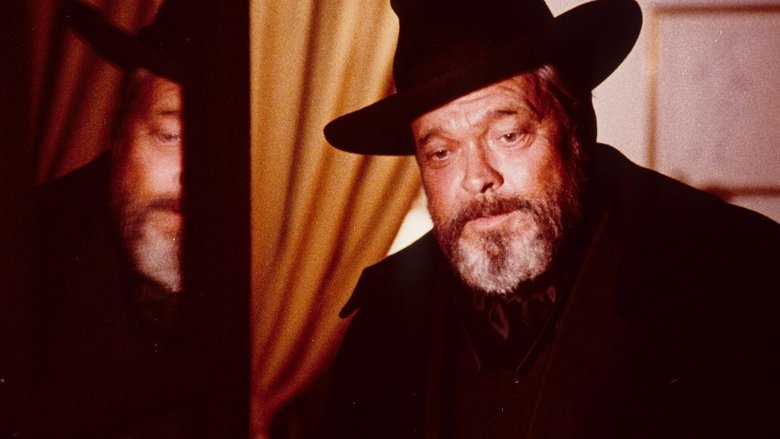
F for Fake (1977)
Documents the lives of infamous fakers Elmyr de Hory and Clifford Irving. De Hory, who later committed suicide to avoid more prison time, made his name by selling forged works of art by painters like Picasso and Matisse. Irving was infamous for writing a fake autobiography of Howard Hughes. Welles moves between documentary and fiction as he examines the fundamental elements of fraud and the people who commit fraud at the expense of others.
Watch Trailer
Cast
Similar titles
Reviews
Instant Favorite.
Fresh and Exciting
A lot of perfectly good film show their cards early, establish a unique premise and let the audience explore a topic at a leisurely pace, without much in terms of surprise. this film is not one of those films.
It is an exhilarating, distressing, funny and profound film, with one of the more memorable film scores in years,
As a hardcore 70s film buff I really wanted to like this 7.8 rated film by a master, Orson Welles. Unfortunately, there is really nothing here, it's just a complex editing job that initially seems interesting but in the end is tedious. You can sort of listen to the narration and be intrigued, and the editing was painstakingly handled, but again, there is nothing much going on here. I consider this simply a curiosity for 70s film fans or Orson Wells completists. For everyone else, move along.
Orson Welles's final major movie was met with criticism at the time of release. The critics were either confused and/or hostile towards the "documentary" if you could call it that. Orson Welles wanted to create a brand new genre of film which mixed documentary and fiction. He has (in my eyes) succeeded. F For Fake tells the stories of many fakes and forgers over the course of several narratives. It was fascinating learning about how De Hory carried out his art forgeries and how Irving fooled the world into thinking that Howard Hughes had written an autobiography. One interesting thing about this movie is that you don't know whether or not the narratives are true which keeps you interested. In addition, Orson Welles is an entertaining host and likable personality that helps carry this movie. This movie has now gathered a cult following that it deserves and I would recommend it if you want to see something truly original and groundbreaking.
A documentary about fraud and fakery, which focuses on Elmyr de Hory's recounting of his career as a professional art forger.Clifford Irving is something of a legend, and definitely belongs in this film for his work as author of a fraudulent Howard Hughes authorized biography. This film purports that Irving and deHory both worked their schemes from the same tiny island, and yet were in no way connected.Sadly, De Hory would commit suicide a few years after the release of Welles' film, on hearing that Spain had agreed to turn him over to the French authorities."F for Fake" faced widespread popular rejection. Critical reaction ranged from praise to confusion and hostility, with many finding the work to be self-indulgent and/or incoherent. "F for Fake" has grown somewhat in stature over the years as cinephiles revere almost anything the notorious filmmaker made.The question remains: how much of this film itself is true or just one big hoax?
If you like Orson Welles -- the man and the voice -- you'll love this. He wanders through this documentary in his black cape and wide-brimmed hat, puffing on a colossal cigar, using his walking stick as a lecturer's pointer, and reciting the writers' lines, and some quotes from Kipling, in that mellifluous, sonorous baritone. He sounds like a stage hypnotist. He even gets to demonstrate some of his magic, making bodies disappear (through phony photography). He's a complete fake. He admits it freely and he's utterly charming.Substantively, the chief subject is Elmyr de Hory. He's a big fake too, a Hungarian gnome whose own painting failed to sell, so he took to more or less expertly copying the works of the masters -- Picasso, Toulouse-Lautrec, practically anybody. He can dash off a Bernard Buffet in the blink of an eye and then cheerfully burn it in the fireplace. He spent a little time in jail but, as he insists, he was "interned" over some passport dispute, not doing time as a prisoner. As of the time of filming, de Hory lives in a mansion on Ibiza overlooking the Mediterranean. He speaks several languages, hosts international celebrities at lavish parties. But he mourns that he's only renting this palace. He doesn't own it. He has hardly a penny.Does he blame himself for having blatantly defrauded innumerable museums and art collectors? Like hell. To hear de Hory tell it, he was performing a public service. Man, did he teach those so-called art experts a lesson in humility. He ought to get a medal.Less time is given over to other frauds, sometimes in a confusing manner. Clifford Irving -- who is by now mostly forgotten -- shows up as a de Hory admirer on the periphery. Irving did a biography of de Hory. I don't know if the art experts learned anything from de Hory but Clifford Irving certainly did. Irving cooked up a fake autobiography of billionaire Howard Hughes and got caught. You can catch Richard Gere giving a fake sympathetic portrait of Clifford Irving in "The Hoax." Also present are some other frauds, including Oja Kodar, a beautiful young woman who was Picasso's mistress and model during his last years. He pained some twenty portraits of her, most unrecognizable. She convinced him that the portraits should be hers and kept private. Picasso agreed and shortly after Kodar left, she was raking in the shekels by showing them in movable displays. At least that's the impression I got. It was all a little murky, like the fake fog in which Kodar herself is enveloped on screen.The general point being made, I think, is that the world is full of deceit -- in and out of the snobbish art world. Well, that's unarguable. All of us lie all the time, beginning with exchanges like: "How are you today?" "Fine." Every sociologist knows this.But for all the flamboyance of the narration, all the flowery prose, it misses something. Namely, it misses the fact that some fakes are worse than others. De Hory's fakes cost people a lot of money, one way or another. If he wanted to teach the art world a lesson, why didn't he paint a bunch of convincing fakes and display them and sell them for what they really were? His professed motive is as fake as his product. That's not even to get INTO Clifford Irving, the smooth-talking snake-oil salesman who finagled something like a million-dollar advance on his carefully contrived "autobiography" of Hughes. When interviewed about the affair after his conviction, Irving quickly switched his role from "perp" to "vic," carrying on about how his children suffered during his troubles.Of course de Hory is charming, and so is Irving, and so was Bernie Madoff. They MUST be charming if their lies are to be believed. The film left me feeling as I always do when I think about these psychopaths. They shouldn't be living in mansions, they shouldn't be beaming about their accomplishments in a movie. They ought to be in jail.


